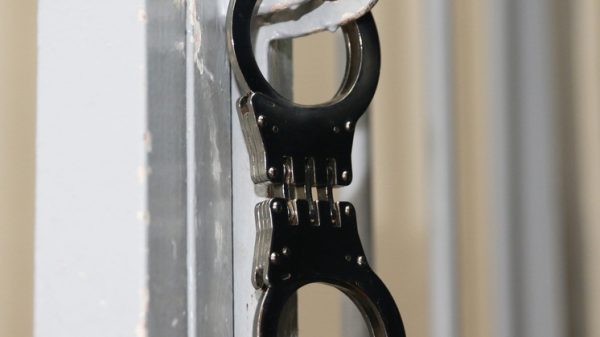 Pascal Chimbonda Skelmersdale United Photo: John Super for the Telegraph
Pascal Chimbonda Skelmersdale United Photo: John Super for the Telegraph
At a time when football seems to be increasingly about money, I wonder how much Pascal Chimbonda is being paid in his new job as manager of non-league Skelmersdale United.
“Nothing,” he says. “I'm not getting anything. People say, «Oh, he's just here for the money.» But there is no money. We have no budget.”
It makes you wonder what kind of man is this who has made 148 Premier League appearances, who has a World Cup runners-up medal kept at his mother's house in Guadeloupe, and who has the unusual distinction of winning a trophy in the modern game , playing for Tottenham Hotspur, he is actually trying to organize a team that is bottom of the ninth tier of the North West Counties League Premier Division. The answer is simple.
“I want to coach, I love coaching,” he says.
He is at Skema, he adds, because, like many former black players, , he found that he could not get a higher management position. The admission came the same week that Sol Campbell turned his back on management for precisely this reason.
“I don’t know why black players don’t get this chance. It’s not that we’re not trying,” says Chimbonda. “I completed all the courses, I have qualifications. I applied for a lot of jobs. Academies, coaching, management, everything. I send my resume and don't even receive a response. No interviews. Not alone. “No experience,” they say. Yes, I need experience. This is what I do. I don’t earn money, I earn experience.”
Red card in the first game
And the experience has already come to him, thick and fast.
“I got sent off in my first game,” he says. “My player is busy with some business on the field. I run to separate him from the other player. And when I return to the dugout, the opposing manager is in front of me. We have words. He grabs me and I pull away. The judge says I'm raising my hand. So this is a red card. Not a good start. But we are winning. Perhaps the players noticed my passion.»
 Life in the North West Counties League… Photo: Gordon Johnson < img src="/wp-content/uploads/2023/11/902c7d79095dd76050f7cd12f4000645.jpg" /> … is very different from Chimbonda's previous life as a Premier League player league at Tottenham. Photo: Getty Images/Richard Heathcote
Life in the North West Counties League… Photo: Gordon Johnson < img src="/wp-content/uploads/2023/11/902c7d79095dd76050f7cd12f4000645.jpg" /> … is very different from Chimbonda's previous life as a Premier League player league at Tottenham. Photo: Getty Images/Richard Heathcote
Chimbonda speaks to Telegraph Sport from his day job at Platt Lane Sports Center in Manchester. Here, where City trained before they were doused with oil money, he has been running the PC39 Academy for the past three years, an organization named after his initials and the number he wore at his last Premier League club Blackburn. Rovers.» . Under his tutelage, around 30 players aged 18 to 23, drafted out of top clubs' academies, undergo intensive training every morning before heading to class to prepare for HND qualification.
“This is for boys who have been rejected by the system,” he says. “I hate the idea that they fell out of love with the game. I want to give them a second chance. I want to help people who have been cut off from the path understand that there is still a path into the game if you believe in yourself.»
And when it comes to self-belief, Chimbonda suffers some setbacks as a role model. He was born on the French island of Guadeloupe and was obsessed with football as a teenager. After watching the 1998 World Cup final, he told his mother that one day he would play for France. The problem was that there was no professional structure on the island and the French seemed uninterested in the potential of their territory. Until a scout from Le Havre arrived to do some testing.
“He said he was looking for one player, just one,” he recalls. “Two hundred people will appear in court. We all know he only takes one. So I make sure it’s me.”
And it was. Despite the fact that he was only 18 years old, despite the fact that he had never left his homeland, despite the fact that he shivered in the winter of northern France, he succeeded in Le Havre. But he soon turned his attention to the Premier League and, after an ill-fated spell at Bastia in Corsica, where he was subjected to merciless racial abuse from the club's fans, he signed for Wigan Athletic in 2005.
“ I couldn’t speak a word of English,” he recalls.
It wasn’t easy when his manager was Paul Jewell, a man whose Scouse accent is almost impenetrable even to native speakers.
“But football is its own language. And the players help me. Stephane Anchoz, he speaks French. He translates for me. By the end I was able to understand Paul Jewell. Well, only when he's calm. When he's angry, no.»
«Just watching Zidane train was an honor.»
At Wigan he was voted the Premier League's best right-back by the PFA and was selected for France's World Cup squad in 2006 year. There he saw a sight that never left him.
“[Zinedine] Zidane is training,” he says, the trepidation still evident in his voice. “What could he do with a soccer ball. Just watching him train is a real honour.”
After the World Cup he spent another six years in the Premier League before moving up the divisions just to keep playing. This was also some experience.
“In non-league, when your opponent realizes he's up against a professional, he lets you know,” he smiles. “I got kicked, man. Kicked out of the park. But I love it. I'm playing veteran games now. When I can. But I don't have time. It's all about coaching. I think about it all the time.
“I have a son who is two years old. When I hit the ball with him, I think like a coach. I think so, but maybe he should kick the ball with the other foot.”
All that obsession with coaching paid off when he finally got his chance on the touchline after years of being rejected. .
“I know Gordon Johnson, vice-chairman of Skem,” he says. “And in the summer I tell him: I see you have a new coach, wait, why not me? You know what I do with my academy, you know what I can train. He says: well, let's see what happens. And then they lose their first 15 games. And he calls me.»
 Chimbonda is determined to stabilize Skelmersdale United and save them from relegation, but also has ambitions manage at a higher level. Photo: John Super for The Telegraph
Chimbonda is determined to stabilize Skelmersdale United and save them from relegation, but also has ambitions manage at a higher level. Photo: John Super for The Telegraph
Thus, in October he took control of the club at the bottom of the league table. The division, whose home ground has been deemed unsafe and plays in nearby Burscough in front of crowds averaging less than 150 people. He immediately changed the situation by taking eight students from his academy into the main team.
“The skill of my guys is not the same as in the Premier League, I know that,” he says. “But all I ask of them is that they give everything. In training, in the game, give me everything you have. You can't be Zidane, but give me everything and I'll respect you.»
Although he first wants to stabilize the situation at Skema, to demonstrate his competence, leading them away from the danger of relegation, he has no confidence in where exactly. it could lead to success.
“Maybe in five years I can run the National League,” he says of his ambitions. “Why not?”
And if he succeeds, competing coaches will be more than aware of his presence. Chimbonda is a coach who doesn't seem to have an off switch.
“I'm loud, on my feet the whole match,” he says. “At the final whistle I have no voice. I give instructions all the time, shouting to them where to go, where to be.”
But did he listen to his coaches when he played? After all, as a defender, he must have been in the direct line of verbal fire. Like many other questions asked of Pascal Chimbonda, this answer was met with a big smile.
“Sometimes I listen. May be. Haha,” he smiles. “But when it’s Paul Jewell, I still don’t understand.”


























































Свежие комментарии